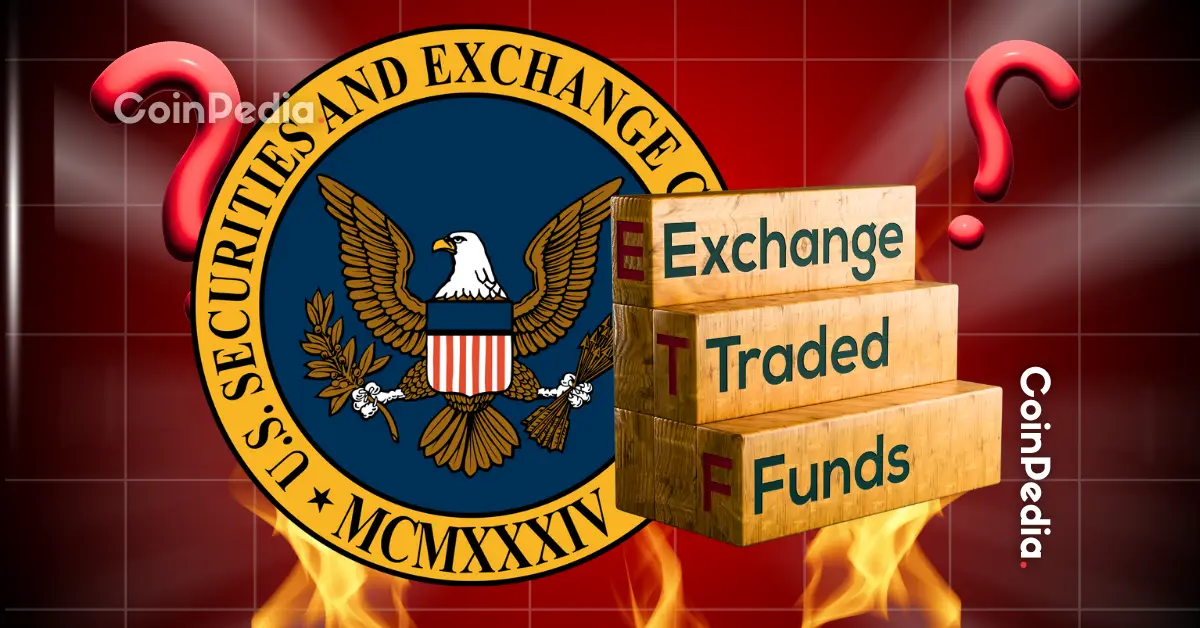
SEC ends 19b-4 filings for XRP, Solana, Cardano, Dogecoin, and Litecoin ETFs, shifting focus to S-1 approvals under new streamlined rules.
XRP ETF path changes as SEC adopts generic listing standards, cutting red tape and making S-1 filings the key step for crypto ETF approvals.
The U.S. Securities and Exchange Commission (SEC) has asked issuers of proposed ETFs tied to XRP, Litecoin, Solana, Cardano, and Dogecoin to withdraw their 19b-4 filings. This request follows the approval of new “generic listing standards” that remove the need for individual 19b-4 forms. Instead, the streamlined framework allows exchanges to list crypto ETFs under the same umbrella rules, provided the tokens meet existing criteria.
What Is a 19b-4 Filing?
A 19b-4 filing is the formal request an exchange makes to the SEC to change its rules, often to list a new product such as an ETF. In the past, every new crypto ETF required one of these filings, creating long delays and multiple rounds of review. The SEC’s new approval of generic listing standards makes this step unnecessary, cutting down red tape.
Deadlines Approaching
Several issuers already had decision deadlines in October and November. With the withdrawal of 19b-4 filings, these deadlines no longer apply. Instead, issuers must now rely solely on the S-1 registration process, the document that provides detailed information about the ETF to investors.
What It Means for XRP
The timing has drawn attention because XRP is seen as a strong candidate for an ETF. The change does not delay approvals indefinitely, but it does shift the process.
Without 19b-4 deadlines, the SEC can approve, or reject, applications at any time based on the S-1 filings.
The Road Ahead
Analysts say the move is not a setback. Rather, it signals that the SEC’s new framework is now active and ready to be used. For XRP and other tokens, the next steps depend on how quickly issuers update their filings under the streamlined process. Investors should not expect extensions in October. Instead, the window has either opened wide, or closed until next year, depending on how the SEC proceeds.
Never Miss a Beat in the Crypto World!
Stay ahead with breaking news, expert analysis, and real-time updates on the latest trends in Bitcoin, altcoins, DeFi, NFTs, and more.
FAQs
It’s a formal request an exchange files with the SEC to change its rules and list a new ETF. This step is now streamlined under new generic standards.
It creates a streamlined “generic listing standard,” removing the need for individual 19b-4 filings and potentially speeding up future crypto ETF approvals.
It removes specific 19b-4 deadlines, giving the SEC more flexibility. This could lead to faster approvals, but the exact timeline is now less predictable.
Trust with CoinPedia:
CoinPedia has been delivering accurate and timely cryptocurrency and blockchain updates since 2017. All content is created by our expert panel of analysts and journalists, following strict Editorial Guidelines based on E-E-A-T (Experience, Expertise, Authoritativeness, Trustworthiness). Every article is fact-checked against reputable sources to ensure accuracy, transparency, and reliability. Our review policy guarantees unbiased evaluations when recommending exchanges, platforms, or tools. We strive to provide timely updates about everything crypto & blockchain, right from startups to industry majors.
Investment Disclaimer:
All opinions and insights shared represent the author's own views on current market conditions. Please do your own research before making investment decisions. Neither the writer nor the publication assumes responsibility for your financial choices.
Sponsored and Advertisements:
Sponsored content and affiliate links may appear on our site. Advertisements are marked clearly, and our editorial content remains entirely independent from our ad partners.



![US CPI Today [LIVE] Updates](https://image.coinpedia.org/wp-content/uploads/2025/10/24170737/US-CPI-Today-Live-Updates-1-390x220.webp)





